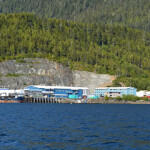Momentum building toward 2020 at Tokyo Sustainable Seafood Symposium
The fourth Tokyo Sustainable Seafood Symposium will be held at Iino Hall and Conference Center on 1 November. Started in 2015, the annual event hosted by Seafood Legacy and Nikkei Ecology – a monthly publication of Nikkei Business Publications – brings together business leaders throughout Japan to discuss issues surrounding smarter management of global fisheries resources. The all-day program will feature a wide range of speakers and panelists.
Seafood Legacy is an organization that forges partnerships between businesses and sustainable seafood non-governmental organizations. Managing Director Wakao Hanaoka said this year will be the biggest in the history of the event, with 610 pre-registrations and more than 60 speakers.
The participation of Japanese speakers has increased over the years. In the first year, when sustainability concepts were being introduced to Japan, 75 percent of the speakers were foreign, but by last year this had flipped to 75 percent Japanese. In the first year, Hanaoka had to search for Japanese speakers, but this year the opposite was true.
“This year the approach came from them," he said. "It’s not like I knocked on their door. I felt the sustainability movement had become rooted in Japanese society.”
Hanaoka is also happy that the movement is being embraced by government and business. For example, Maruha Nichiro and Nissui sponsored the conference last year. This year, Maruha Nichiro dropped it, but Nissui continued. There are also many middlemen and traders in the audience, so the event is bringing key stakeholders together. Formerly, businesses may have been defensive, as they were sometimes the targets of criticism, but now they seem to be trying to get ahead of the curve and take the initiative, Hanaoka said, adding that the atmosphere of the event is positive and that each company and NGO works hard to publicize its achievements.
“It’s a time to praise Japanese initiatives. It is growing. They are getting more courage. It is a positive cycle,” Hanaoka said.
Hanaoka explained that Seafood Legacy’s working theory is, “Changing policy can only happen if we change the business first.”
“Business is showing the government what needs to be done. At least there will be no strong negative reaction from the market side,” he said. “Everyone recognizes that 2020 will be a milestone. Businesses understand that things will change.”
The reason for the stress on the year 2020 is that the Summer Olympics will be held in Tokyo, which will shine an international spotlight on Japan and its sustainability practices. It will be the first time that the [Global Seafood Sustainability Initiative] is actually written in the procurement code for vendors of the Games. This is a landmark, though many NGOs have pushed for stronger language requiring third-party verification, which some products allowed under the current language of the code may not have. Japan’s Marine Eco-Label (MEL) certification scheme is included, though it is an industry administered program. Still, Hanoaka said that MEL is taking the criticisms to heart and it is good that they recognize the shortcomings of the program and have committed to work hard to be recognized.
Additionally, The CBD (Convention on Biological Diversity) Aichi targets cover the decade 2010-2020. Taken together, there is a feeling among industry and government that the changes are going to happen, Hanaoka said.
“The whole industry is moving in a positive direction,” he said.
He was also pleased that high-level government officials are also participating, including the Fisheries Agency Director General, Environment Ministry Permanent Secretariat, and Foreign Affairs Ministry Assistant Minister.
Tech companies like KDDI, NEC, and NTT are taking also part this year, as they see a “blue ocean” business opportunity in the sector. They can provide solutions for such issues as traceability.
Additionally, a regulatory reform promotion group under the Cabinet Office was formed to recommend changes to the Basic Fisheries Law – the first major reforms to the law in 70 years. When Prime Minister Shinzo Abe called a special legislative session, he mentioned it in his session opening speech. Hanaoka has joined the group as an expert advisor. He supports the move because it strengthens Japanese resource management.
“The time for talking … is over. The time for doing nothing is over,” he said.
Photo courtesy of Seafood Legacy






Share